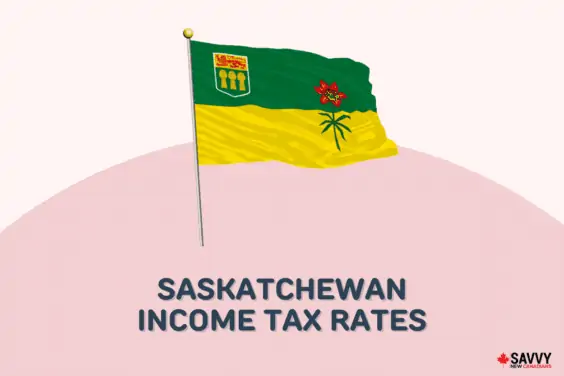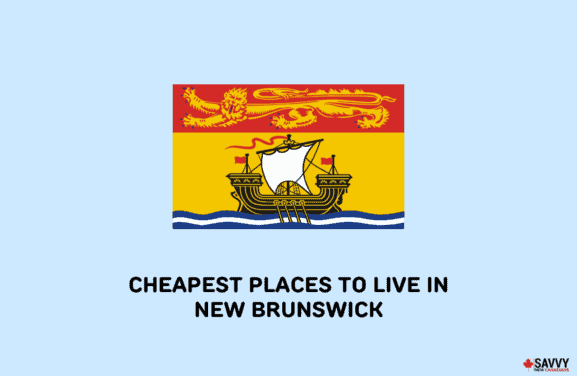Being an international student in Canada often means facing more expenses than your Canadian peers. However, despite the financial challenges of studying abroad, there are some ways to increase your savings and minimize your expenses.
This article contains everything you need to know about saving money as an international student in Canada. As a bonus, I’ve included several ways to earn extra income while you’re studying away from home.
Key Takeaways
- Some of the best ways to save money in Canada as an International student are to live off campus, stick to a budget, and cook food at home.
- If you want to make money as an international student, get an on-campus or off-campus job while you study.
- International students are subject to many scholarship programs offered by the government and private organizations in Canada.
How To Save Money As An International Student
1. Live Off-Campus
Living within the campus may be convenient, but it’s often one of the most expensive types of accommodation for international students. So, to reduce your monthly rent significantly, consider living outside your college or university through shared rooms or apartments.
Sure, renting away from your school may incur additional transportation costs. However, these expenses are often cheaper than the cost difference between on-campus dormitories and off-campus accommodation.
2. Rent Textbooks Instead Of Buying
Depending on your subjects, you may spend thousands of dollars to buy post-secondary textbooks annually. That said, financially speaking, a better alternative to buying these school necessities is to rent them instead.
Consider reaching out to higher-level students to see whether they’re willing to rent the textbooks you need for the semester. Alternatively, you can find platforms or people online offering textbook rental services.
3. Get A Student Discount Card
Take advantage of discount cards that are exclusively available for students. Although these cards often require a one-time fee or annual subscription, your upfront expense will undoubtedly be less than how much you can save in the long term.
My top recommendations are the SPC and ISIC student discount cards. These cards will let you enjoy up to 30% discounts on participating retail brands and restaurants such as Adidas, Indigo, and Davids Tea.
4. Apply For A Student Credit Card
Some people think that getting a credit card as a student is taking a step closer to developing bad financial habits. However, I, along with many financial experts, strongly disagree.
Student credit cards are helpful as they allow you to prioritize specific expenses, enjoy cashback or rewards, and even receive welcome bonuses in the form of cash or gadgets.
As long as you pay back your debt in time, a credit card can be an important financial tool that helps you alleviate your immediate financial burdens and let you save money in university.
5. Save Money While Travelling
Saving money as a student is not just about minimizing your school-related expenses. It also involves being more aware of your travel expenditure, whether you’re travelling for leisure or school.
Some of the easiest and most effective ways to save money while travelling include optimizing travel credit cards, prioritizing public transportation, and booking cheaper flights on weekdays.
6. Make A Budget
To save money as a student in Canada, you must know how to create and stick to a budget. Budgeting ensures you live within your means, prevent overspending on specific expense categories, and ultimately avoid debt while increasing your savings.
When creating a budget, consider not only your school-related expenses but also your personal expenses. After all, many people tend to overspend on leisure activities rather than their essential needs.
7. Track Your Spending
The best way to know whether you’re sticking to the budget you created is to track your spending.
While this may sound like a lot of work, it’s actually a pretty manageable strategy, as there are many budgeting apps that can track your expenses and even provide tips to help you achieve your financial goals.
By tracking your expenses, it’ll become much easier to identify areas where you’re spending more than necessary and to know how to reallocate your funds to save more money.
8. Cook Food At Home
Eating out is the default option for many students as it’s more convenient and time-efficient than cooking at home. However, from a financial standpoint, you should cook your own meals as much as possible since it’s much cheaper than ordering food.
Just get enough groceries for the week, create a simple meal plan, and you can significantly reduce your food expenses.
If you don’t have enough time to cook daily, you can always do a meal-prep session once or twice a week, where you make enough ready-to-eat meals that’ll last you several days.
9. Shop At Discount Stores
Whenever you need basic supplies, check whether nearby discount or thrift stores have what you need. These retailers sell a wide range of items at much lower prices than their competitors, allowing you to allocate more money to your savings instead.
Some of the most popular budget-friendly stores you can visit are Dollarama and Salvation Army. The dollar store is great for basic school supplies, while the latter is a good source of secondhand personal and household items.
10. Take Part In Free Social Activities
Socializing and budgeting can absolutely go hand-in-hand. The secret? Optimizing the free social and cultural events happening around you.
In most Canadian cities, you can enjoy free admission to museums and many other attractions for free all year round or on specific days of the week.
Additionally, your school may have upcoming social events that you and your friends can enjoy without spending tons of money.
11. Make Coffee At Home
Grabbing coffee at a nearby coffee shop is a classic way to start or end your university classes. However, while a single cup of this caffeine booster may not seem to cost much, over a month, you can easily spend over a hundred dollars on coffee alone.
That said, if you’re a coffee enthusiast, don’t be afraid to invest in a coffee maker for your home instead. When brewing at home, you can easily recreate a latte or americano that would cost $5 a café for less than a dollar’s worth of ingredients.
How To Make Money In Canada As An International Student
Get An On-Campus Job
Although international students can only work up to 20 hours a week off-campus when school’s ongoing, they can work full-time, all-year-round, for an on-campus employer.
On that note, one of the best ways to earn money in Canada as an international student is to work within your school by getting employed by the school, faculty members, or student organizations.
Your guidance counsellor can often help you throughout the process of getting employed on-campus, so I highly recommend scheduling an appointment with them.
Get a Part-Time Job
As mentioned earlier, it’s completely legal for full-time international students to work in Canada on a study permit. Off-campus, they can work up to 20 hours per week during a regular academic session and even full-time during the academic year’s regularly scheduled breaks.
That said, don’t hesitate to explore part-time jobs outside of your campus ground. Some of the best part-time jobs for international students include being a translator, dog walker, and restaurant server.
Feel free to work and explore multiple jobs. As long as you stay within your working hours limit, doing so won’t violate your student permit rules and regulations.
Apply For Scholarships
Both government and private organizations in Canada offer partial or complete school funding for international students.
For most of these scholarships, you can apply online. However, don’t make the mistake of sending the same applications and essays for all your scholarship applications, as this is one of the easiest ways to not be chosen for the award.
Note: Savvy New Canadians also has its own financial literacy scholarship.
Do Gig Economy Work In Your Free Time
If you can’t or don’t want to find an on-campus or off-campus job, consider joining the gig economy. These freelance jobs typically require no long-term or fixed-schedule commitment, allowing you the flexibility to continue or stop working whenever you want.
Some of the best-paying gig economy jobs in Canada include proofreading, freelance writing, and being a food delivery driver.
What Are The Living Expenses In Canada For International Students Per Month?
The average living expenses for international students in Canada typically fall between $2,000 to $4,000, excluding tuition fees. The wide range is mainly due to the significantly varying costs of essential expenditures like housing and food, which depend on the location and individual preferences of the student.
To provide an example of how an international student’s budget of $2,500 monthly can be allocated, here is a graph depicting the typical living costs of students in Toronto.
| Type of Expense | Average Allocation Per Month |
| Housing | $1,350 |
| Electricity Expenses | $100 |
| Internet | $80 |
| Phone Bill | $75 |
| Health and Tenant Insurance | $100 |
| Food and Groceries | $350 |
| Transportation | $130 |
| Clothing | $65 |
| Entertainment and Leisure | $150 |
| School Supplies | $100 |
Lastly, you can save on your banking by going with a free chequing account that includes free unlimited transactions, such as those offered by HSBC and Simplii Financial.
HSBC Student Chequing Account
Monthly fee: $0
Free transactions: Unlimited day-to-day banking and free Interac e-Transfers.
Sign-up bonus: Earn up to a $150 welcome bonus.
Interest earned on deposit: N/A

On HSBC’s website
Simplii Financial No-Fee Chequing Account
Monthly fee: $0
Free transactions: Unlimited debit purchases, bill payments, and withdrawals.
Sign-up bonus: Get a $400 bonus when you add an eligible direct deposit of at least $100 per month for 3 months. Earn 6.00% interest on a free Simplii savings account.
Interest earned on deposit: Up to 0.10%.

On Simplii Financial’s website
FAQs
At the very least, an international student should have around $10,000 annually to live in Canada. Note, however, that this amount does not cover the tuition fee of universities which can go up to $50,000 per academic year for international students.
Yes, it’s worth going to Canada as an international student. Canadian universities are known for providing high-quality education, with some being included in the top 100 universities in the world.
How much international students earn in Canada varies depending on their line of work, whether they work within or outside campus, and the province they live in. However, to give you an example, an international student in Toronto working off-campus can earn $1,300 or more monthly, pre-taxes.
International students in Canada often spend $200 to $500 on groceries a month. This amount often also considers expenses for eating out or getting food delivered.



